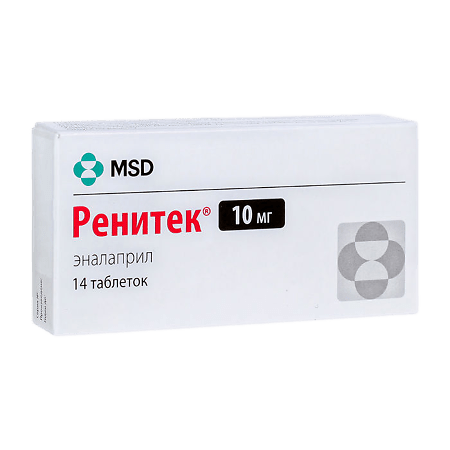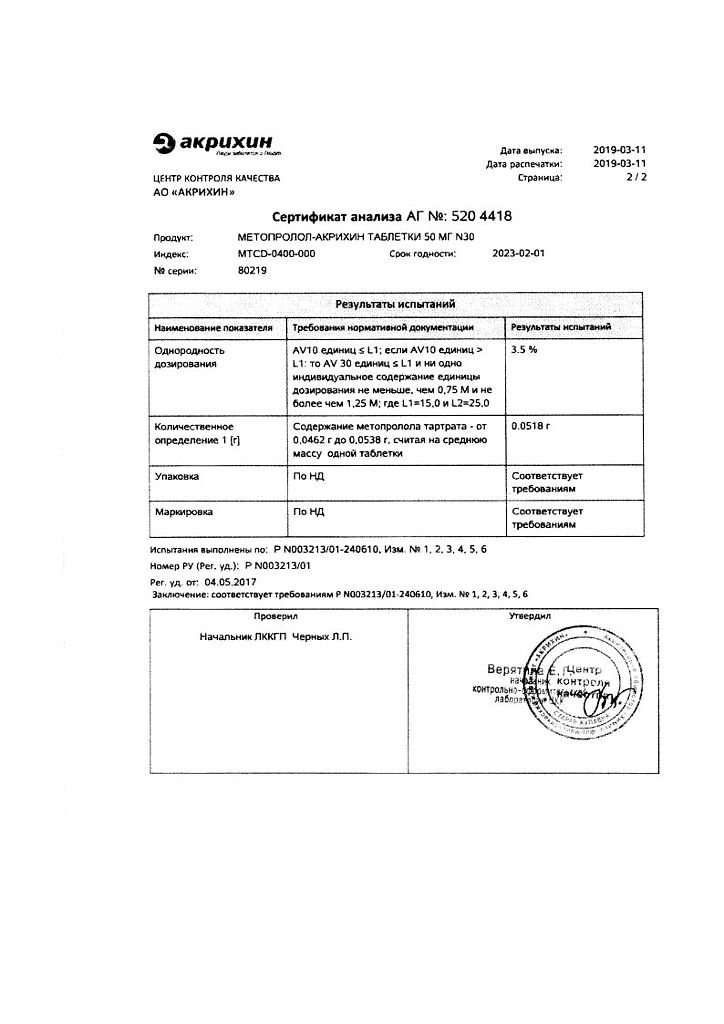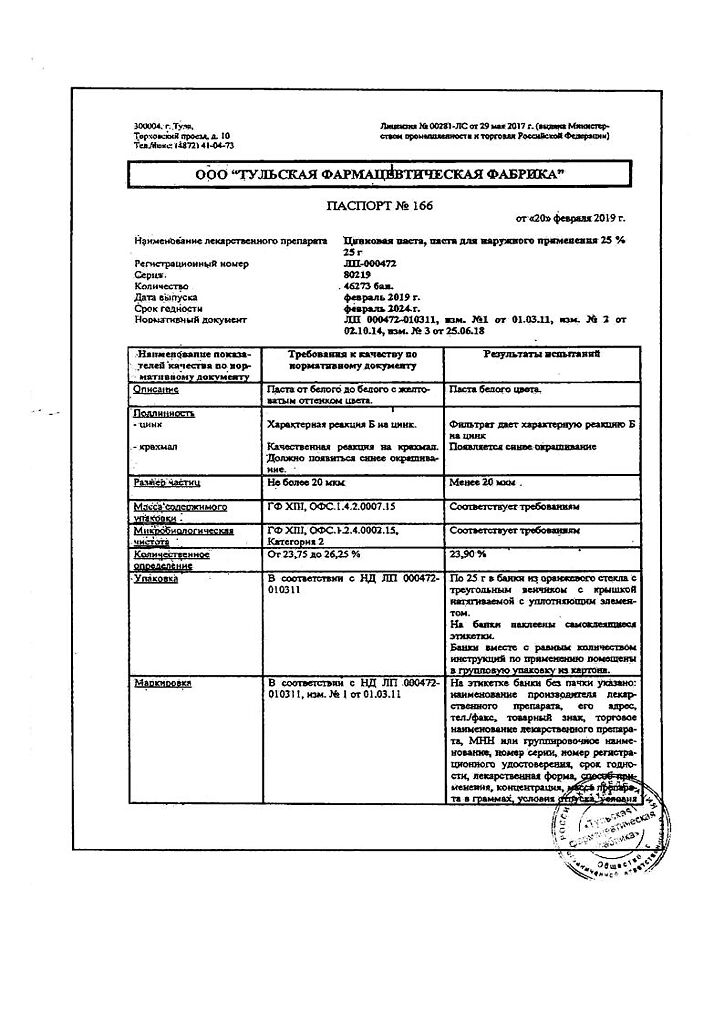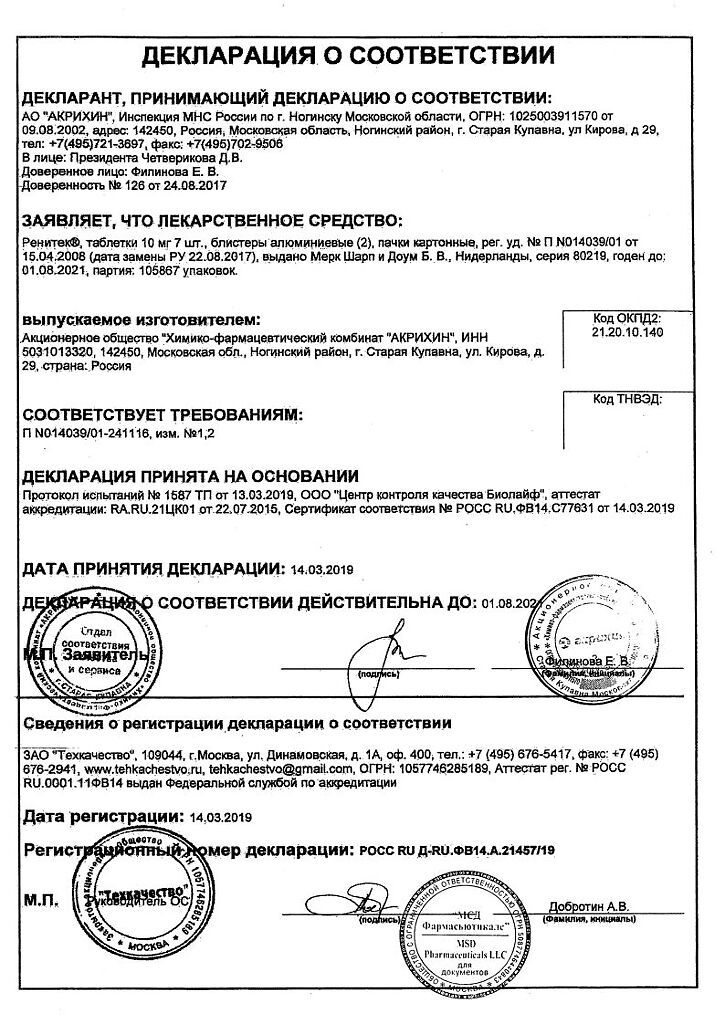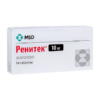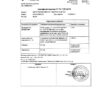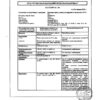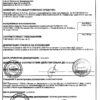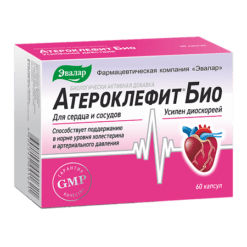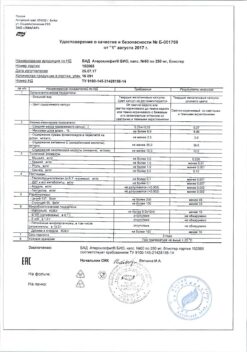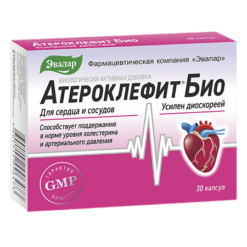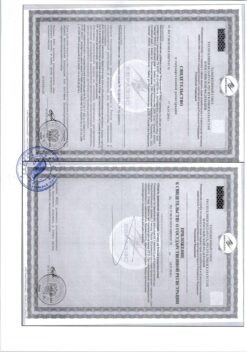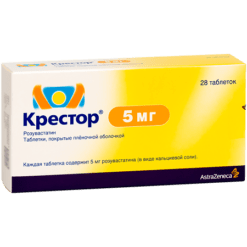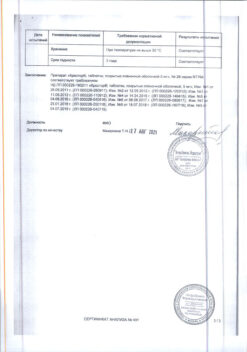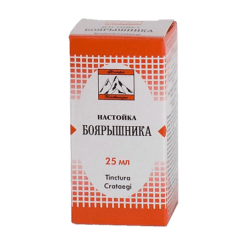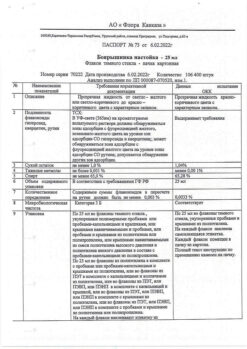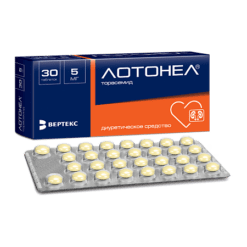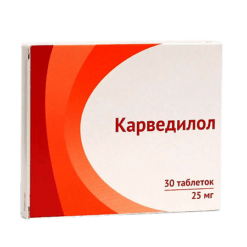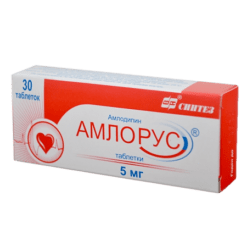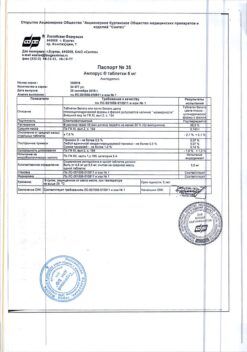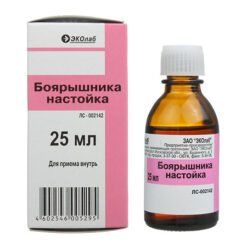No products in the cart.
Renitec, 10 mg tablets 14 pcs
€2.68 €2.44
Description
Pharmgroup:
The ACE inhibitor.
Pharmic action:
Renitech® (enalapril maleate) refers to agents that affect the renin-angiotensin system – ACE inhibitors and is a highly specific, long-acting, non-sulfhydryl group ACE inhibitor.
Renitec® (enalapril maleate) is a derivative of two amino acids: L-alanine and L-proline. Enalapril is an ACE inhibitor which catalyzes the conversion of angiotensin I into the pressor substance angiotensin II. After absorption, orally ingested enalapril is converted by hydrolysis to enalaprilate, which inhibits ACE. ACE inhibition leads to decrease of angiotensin II concentration in plasma, which leads to increase of plasma renin activity (due to elimination of negative feedback on renin production) and decrease of aldosterone secretion.
The ACE is identical to the enzyme kininase II, so enalapril can also block the breakdown of bradykinin, a peptide with a vasodilatory effect. The significance of this effect in the therapeutic effects of enalapril needs to be clarified. It is now thought that the mechanism by which enalapril lowers BP is the inhibition of the renin-angiotensin-aldosterone system, which plays an important role in regulating BP.
Enalapril shows antihypertensive effect even in patients with decreased concentration of renin. Decrease of BP is accompanied by decrease of total peripheral vascular resistance, increase of cardiac output and no or little change of heart rate. Enalapril administration results in increased renal blood flow, but glomerular filtration rate remains unchanged. However, in patients with initially decreased glomerular filtration, its level usually increases.
Enalapril antihypertensive therapy leads to significant regression of left ventricular hypertrophy and preservation of systolic function.
Enalapril therapy is accompanied by favorable effects on lipoprotein fraction ratios and no or favorable effects on total cholesterol concentrations.
Enalapril administration in patients with arterial hypertension leads to a decrease in BP regardless of body position: both in standing and lying position without a significant increase in HR.
Symptomatic postural hypotension rarely develops. In some patients, it may take several weeks of therapy to achieve optimal BP reduction. Interruption of therapy with enalapril does not cause a sharp rise in BP.
Effective inhibition of ACE activity usually develops 2-4 hours after a single oral dose of enalapril. The onset of hypotensive action occurs within 1 hour, the maximum BP reduction is observed 4-6 hours after taking the drug. Duration of action depends on the dose. However, when using the recommended doses, the antihypertensive effect and hemodynamic effects are maintained for 24 hours.
Enalapril reduces the loss of potassium ions caused by the use of hydrochlorothiazide.
Indications
Indications
Essential arterial hypertension (mild, moderate and severe forms);
Renovascular hypertension;
Chronic heart failure of all functional classes.
In patients with clinical manifestations of heart failure, Renitec is indicated to increase patient survival rates, slow the progression of heart failure, and reduce the frequency of hospitalizations.
Pharmacological effect
Pharmacological effect
Pharmaceutical group:
ACE inhibitor.
Pharmaceutical action:
Renitek® (enalapril maleate) refers to drugs that affect the renin-angiotensin system – ACE inhibitors and is a highly specific, long-acting, sulfhydryl group-free ACE inhibitor.
Renitec® (enalapril maleate) is a derivative of two amino acids: L-alanine and L-proline. Enalapril is an ACE inhibitor, which catalyzes the conversion of angiotensin I into the pressor substance angiotensin II. After absorption, enalapril taken orally is converted by hydrolysis into enalaprilat, which inhibits ACE. ACE inhibition leads to a decrease in the concentration of angiotensin II in the blood plasma, which entails an increase in plasma renin activity (due to the elimination of the negative feedback reaction to changes in renin production) and a decrease in aldosterone secretion.
ACE is identical to the enzyme kininase II, so enalapril can also block the destruction of bradykinin, a peptide that has a vasodilating effect. The significance of this effect in the therapeutic action of enalapril requires clarification. It is currently believed that the mechanism by which enalapril lowers blood pressure is the suppression of the renin-angiotensin-aldosterone system, which plays an important role in the regulation of blood pressure.
Enalapril exhibits antihypertensive effects even in patients with reduced renin concentrations. The decrease in blood pressure is accompanied by a decrease in total peripheral vascular resistance, an increase in cardiac output and no changes or slight changes in heart rate. As a result of taking enalapril, renal blood flow increases, but the level of glomerular filtration remains unchanged. However, in patients with initially reduced glomerular filtration, its level usually increases.
Antihypertensive therapy with enalapril leads to a significant regression of left ventricular hypertrophy and preservation of its systolic function.
Enalapril therapy is accompanied by a beneficial effect on the ratio of lipoprotein fractions and no effect or a beneficial effect on the concentration of total cholesterol.
Taking enalapril by patients with arterial hypertension leads to a decrease in blood pressure regardless of body position: both in a standing position and in a lying position without a significant increase in heart rate.
Symptomatic postural hypotension is rare. In some patients, achieving optimal blood pressure reduction may require several weeks of therapy. Interruption of enalapril therapy does not cause a sharp rise in blood pressure.
Effective inhibition of ACE activity usually develops 2-4 hours after a single oral dose of enalapril. The onset of the hypotensive effect occurs within 1 hour, the maximum decrease in blood pressure is observed 4-6 hours after taking the drug. The duration of action depends on the dose. However, when using recommended doses, the antihypertensive effect and hemodynamic effects are maintained for 24 hours.
Enalapril reduces the loss of potassium ions caused by the use of hydrochlorothiazide.
Special instructions
Special instructions
Renitec® should be used with caution in the treatment of patients with bilateral renal artery stenosis or stenosis of the artery of a single kidney, with primary hyperaldosteronism, hyperkalemia, and conditions after kidney transplantation; aortic stenosis, mitral stenosis (with impaired hemodynamic parameters), idiopathic hypertrophic subaortic stenosis; systemic connective tissue diseases; coronary heart disease; cerebrovascular diseases; diabetes mellitus; renal failure (proteinuria – more than 1 g/day); liver failure; in patients on a salt-restricted diet or on hemodialysis; when taken simultaneously with immunosuppressants and diuretics, in elderly patients (over 65 years), inhibition of bone marrow hematopoiesis; conditions accompanied by a decrease in circulating blood volume (including diarrhea, vomiting).
Clinically significant arterial hypotension
Clinically significant hypotension is rarely observed in patients with uncomplicated arterial hypertension. In patients with arterial hypertension receiving Renitec®, arterial hypotension develops more often against the background of hypovolemia, which occurs, for example, as a result of diuretic therapy, salt restriction, in patients on hemodialysis, and also suffering from diarrhea or vomiting. Clinically significant arterial hypotension was also observed in patients with heart failure, accompanied or not accompanied by renal failure.
Hypotension occurs more frequently in patients with more severe forms of heart failure, those using higher doses of loop diuretics, hyponatremia, or impaired renal function. In such patients, treatment with Renitec should be initiated under medical supervision, which should be especially careful when changing the dose of Renitec and/or diuretic. Similarly, patients with coronary heart disease and cerebrovascular diseases should be monitored, in whom a sharp decrease in blood pressure can lead to myocardial infarction or stroke. If arterial hypotension develops, the patient should be laid down and, if necessary, saline sodium chloride solution should be administered intravenously.
Transient arterial hypotension when taking Renitec is not a contraindication to further treatment with the drug, which can be continued after fluid volume is replenished and blood pressure is normalized. In some patients with heart failure and with normal or low blood pressure, Renitec® may cause an additional decrease in blood pressure. This reaction to the drug can be expected and should not be regarded as a reason to discontinue treatment. In cases where arterial hypotension becomes stable, the dose should be reduced and/or treatment with a diuretic and/or Renitec should be discontinued.
Aortic stenosis/hypertrophic cardiomyopathy
As with all vasodilators, ACE inhibitors should be administered with caution to patients with left ventricular aortic obstruction.
Renal dysfunction
In some patients, hypotension that develops after initiation of treatment with ACE inhibitors may lead to deterioration of renal function. In some cases, the development of acute renal failure, usually reversible, has been reported.
In patients with renal failure, it may be necessary to reduce the dose and/or frequency of dosing. In some patients with bilateral renal artery stenosis or arterial stenosis of a solitary kidney, increases in blood urea and serum creatinine were observed. The changes were usually reversible and the values returned to normal after cessation of treatment. This pattern of changes is most likely in patients with renal failure. In some patients who did not have renal disease before treatment, Renitec® in combination with diuretics usually caused a slight and transient increase in blood urea and serum creatinine. In such cases, it may be necessary to reduce the dose and/or discontinue the diuretic and/or Renitec.
Hypersensitivity/Angioedema
When prescribing ACE inhibitors, including Renitec, rare cases of angioedema of the face, extremities, lips, tongue, glottis and/or larynx have been described, occurring during different periods of treatment. In such cases, you should immediately stop treatment with Renitec and establish constant monitoring of the patient to ensure complete disappearance of symptoms. Even in cases where only difficulty swallowing occurs without breathing problems, patients should be under medical supervision for a long time, since therapy with antihistamines and corticosteroids may not be sufficient.
Angioedema of the larynx or tongue can be fatal. In cases where swelling is localized in the area of the tongue, glottis or larynx and can cause airway obstruction, appropriate therapy should be promptly initiated, which may include subcutaneous administration of a solution of epinephrine (adrenaline) 0.1% (0.3-0.5 ml) and/or urgent measures to ensure airway patency.
Patients with a history of angioedema not associated with the use of ACE inhibitors may have an increased risk of its occurrence when treated with an ACE inhibitor. In patients of the Negroid race, the incidence of angioedema when taking ACE inhibitors is higher than in representatives of other races.
Anaphylactic reactions during hyposensitization with an allergen from Hymenoptera venom
In rare cases, patients receiving ACE inhibitors during hyposensitization with an allergen from Hymenoptera venom have developed anaphylactic reactions that pose a threat to the patients’ lives. Such reactions can be avoided if you temporarily stop taking the ACE inhibitor before the onset of hyposensitization.
Patients on hemodialysis
Patients on dialysis using high-flow membranes (eg, AN69®) and concomitantly receiving an ACE inhibitor have experienced anaphylactic reactions in some cases. Therefore, for such patients, it is recommended to use a different type of dialysis membrane or a different group of antihypertensive agents.
Cough
There are reports of cough occurring during treatment with ACE inhibitors. Usually the cough is non-productive, persistent and stops after discontinuation of the drug. Cough due to treatment with an ACE inhibitor should be considered in the differential diagnosis of cough.
Surgery/General anesthesia
During major surgery or during general anesthesia with the use of agents that cause a hypotensive effect, enalapril blocks the formation of angiotensin II secondary to the compensatory release of renin. If a pronounced decrease in blood pressure develops, explained by a similar mechanism, it can be corrected by increasing the volume of fluid administered.
Hyperkalemia
Risk factors for the development of hyperkalemia include renal failure, diabetes mellitus, concomitant use of potassium-sparing diuretics (spironolactone, triamterene or amiloride), as well as the use of potassium supplements and salts.
The use of potassium supplements, potassium-sparing diuretics, or potassium-containing salts, especially in patients with renal failure, can lead to a significant increase in serum potassium levels. Hyperkalemia can cause serious, and in some cases fatal, cardiac arrhythmias.
If concomitant administration of the above potassium-containing or potassium-increasing drugs is necessary, caution should be exercised and regular monitoring of potassium levels in the blood serum.
Hypoglycemia
Patients with diabetes mellitus receiving oral hypoglycemic agents or insulin should be informed before starting the use of ACE inhibitors of the need to carefully monitor blood glucose levels (hypoglycemia), especially during the first month of co-administration of these drugs.
Use in Elderly Patients
Clinical studies of the efficacy and tolerability of enalapril were similar in older and younger patients.
Impact on the ability to drive a car and/or operate machinery
During the treatment period, care must be taken when driving vehicles and engaging in other potentially hazardous activities that require increased concentration and speed of psychomotor reactions (dizziness is possible, especially after taking the initial dose of an ACE inhibitor in patients taking diuretic drugs).
Active ingredient
Active ingredient
Enalapril
Composition
Composition
1 tablet contains:
Active ingredient:
Enalapril maleate 10 mg.
Excipients:
Sodium bicarbonate;
Lactose monohydrate;
Corn starch;
Pregelatinized corn starch;
Magnesium stearate;
Iron oxide red (E172).
Pregnancy
Pregnancy
Use of the drug during pregnancy is not recommended. If pregnancy occurs, Renitec should be stopped immediately. ACE inhibitors can cause disease or death of the fetus or newborn when prescribed to pregnant women during the second and third trimesters of pregnancy.
The use of ACE inhibitors during these periods was associated with adverse effects on the fetus and newborn, including the development of arterial hypotension, renal failure, hyperkalemia and/or cranial hypoplasia in the newborn. Oligohydramnios may develop, apparently due to decreased fetal renal function. This complication can lead to contracture of the limbs, deformation of the skull, including its facial part, and hypoplasia of the lungs. When prescribing Renitec, it is necessary to inform the patient about the potential risk to the fetus.
These adverse effects on the embryo and fetus do not appear to be the result of in utero exposure to ACE inhibitors during the first trimester of pregnancy.
Newborns whose mothers took Renitec should be carefully monitored for decreased blood pressure, oliguria and hyperkalemia. Enalapril, which crosses the placenta, can be partially removed from the neonatal circulation by peritoneal dialysis; theoretically it can be removed through exchange transfusion.
Enalapril and enalaprilat are detected in human milk in trace concentrations. If the use of the drug is necessary, the patient should stop breastfeeding.
Contraindications
Contraindications
History of angioedema associated with previous prescription of ACE inhibitors;
Hereditary or idiopathic angioedema;
Age up to 18 years (efficacy and safety have not been established);
Hypersensitivity to any of the components of the drug Renitec.
Side Effects
Side Effects
In general, the drug is well tolerated. The total incidence of side effects when using Renitec does not exceed that when prescribing placebo. In most cases, side effects are minor, temporary and do not require discontinuation of therapy.
When prescribing the drug Renitec, the following side effects are observed: dizziness and headache are the most common. Increased fatigue and asthenia are observed in 2-3% of patients. Other side effects (hypotension, orthostatic hypotension, syncope, nausea, diarrhea, muscle cramps, skin rash and cough) occur in less than 2% of patients. There are rare reports of renal dysfunction, renal failure, oliguria and proteinuria.
Hypersensitivity/Angioedema
In rare cases, angioedema of the face, extremities, lips, tongue, glottis and/or larynx has been observed, and very rarely, intestinal angioedema has been observed.
In very rare cases, the following side effects occur:
From the cardiovascular system: in less than 2% of patients – arterial hypotension, orthostatic hypotension, fainting; in very rare cases – chest pain, palpitations, heart rhythm disturbances, angina pectoris. It is possible to develop acute myocardial infarction or stroke in patients at risk.
From the central nervous system and peripheral nervous system: most often – dizziness, headache; in 2-3% of cases – increased fatigue, asthenia; in very rare cases – depression, confusion, sleep disturbances, paresthesia, tinnitus, blurred vision.
From the digestive system: in less than 2% of patients – nausea, diarrhea; in very rare cases – intestinal obstruction, pancreatitis, liver failure, hepatitis, jaundice, abdominal pain, vomiting, dyspepsia, constipation, anorexia, stomatitis, increased activity of liver transaminases and plasma bilirubin concentration (these changes are usually reversible and normalize after stopping Renitec).
From the respiratory system: less than 2% of patients have a cough; in very rare cases – pulmonary infiltrates, bronchospasm, shortness of breath, rhinorrhea, pharyngitis, dysphonia (hoarseness).
From the urinary system: in rare cases – renal dysfunction, renal failure, oliguria; increased levels of urea and creatinine (these changes are usually reversible and normalize after stopping Renitec).
Allergic reactions: in less than 2% of patients – skin rash; rarely – angioedema of the face, limbs, lips, tongue, glottis and/or larynx; in very rare cases – erythema multiforme, exfoliative dermatitis, Stevens-Johnson syndrome, toxic epidermal necrolysis, pemphigus, itching, urticaria. The development of a complex symptom complex was reported, including fever, serositis, vasculitis, myalgia/myositis, arthralgia/arthritis, a positive test for antinuclear antibodies, increased ESR, eosinophilia and leukocytosis.
From the hematopoietic system: in some cases – neutropenia, thrombocytopenia, agranulocytosis.
Dermatological reactions: itching, alopecia, facial skin flushing.
From laboratory parameters: possible development of hyperkalemia and hyponatremia; decrease in hemoglobin and hematocrit levels.
Other: increased sweating, convulsions, impotence, glossitis, changes in taste, tinnitus.
Interaction
Interaction
When Renitec is prescribed in combination with other antihypertensive drugs, a summation of the effect may be observed.
Serum potassium concentrations usually remain within normal limits. In patients with arterial hypertension treated with Renitec for more than 48 weeks, an increase in serum potassium of up to 0.2 mEq/L is observed.
When Renitec is used concomitantly with diuretics that cause potassium loss, hypokalemia caused by the action of diuretics is usually attenuated by the effect of enalapril.
Risk factors for the development of hyperkalemia include renal failure, diabetes mellitus, concomitant use of potassium-sparing diuretics (spironolactone, triamterene or amiloride), as well as the use of potassium supplements and salts. The use of potassium supplements, potassium-sparing diuretics, or potassium-containing salts, especially in patients with renal failure, can lead to a significant increase in serum potassium levels. If concomitant administration of the above potassium-containing or potassium-increasing drugs is necessary, caution should be exercised and regular monitoring of potassium levels in the blood serum.
The combined use of ACE inhibitors and hypoglycemic agents (insulin, oral hypoglycemic agents) may enhance the hypoglycemic effect of the latter with the risk of developing hypoglycemia. This phenomenon was generally observed most often during the first weeks of their joint use, as well as in patients with renal failure. In patients with diabetes mellitus receiving oral hypoglycemic agents or insulin, blood glucose levels should be carefully monitored, especially during the first month of co-administration with ACE inhibitors.
ACE inhibitors reduce the excretion of lithium by the kidneys and increase the risk of developing lithium intoxication. If it is necessary to prescribe lithium salts, it is necessary to monitor the level of lithium in the blood serum.
NSAIDs, including selective COX-2 inhibitors, may reduce the effect of diuretics and other antihypertensive drugs. Thus, the antihypertensive effect of ACE inhibitors may be attenuated by NSAIDs, including COX-2 inhibitors.
In some patients with impaired renal function and taking NSAIDs, including COX-2 inhibitors, concomitant use of ACE inhibitors may lead to a further deterioration of renal function. These changes are usually reversible.
A complex of symptoms, including facial flushing, nausea, vomiting and hypotension, has been described in rare cases with the combined use of gold preparations for parenteral use (sodium aurothiomalate) and ACE inhibitors (enalapril).
Overdose
Overdose
Information on overdose is limited.
Symptoms: pronounced decrease in blood pressure, starting approximately 6 hours after taking the drug, and stupor. Concentrations of enalaprilat in the blood plasma that were 100-200 times higher than the concentrations observed when prescribing therapeutic doses occurred after taking 300 and 440 mg of enalapril, respectively.
Treatment: intravenous infusion of isotonic sodium chloride solution, if possible – infusion of angiotensin II; inducing vomiting. It is possible to remove enalaprilat using hemodialysis.
Storage conditions
Storage conditions
At a temperature not exceeding 25 °C.
Shelf life
Shelf life
2.5 years.
Manufacturer
Manufacturer
Merck Sharp and Dome B.V., The Netherlands
Additional information
| Shelf life | 2.5 years. |
|---|---|
| Conditions of storage | At a temperature not exceeding 25 °C. |
| Manufacturer | Merck Sharp & Doum B.V., The Netherlands |
| Medication form | pills |
| Brand | Merck Sharp & Doum B.V. |
Related products
Buy Renitec, 10 mg tablets 14 pcs with delivery to USA, UK, Europe and over 120 other countries.

